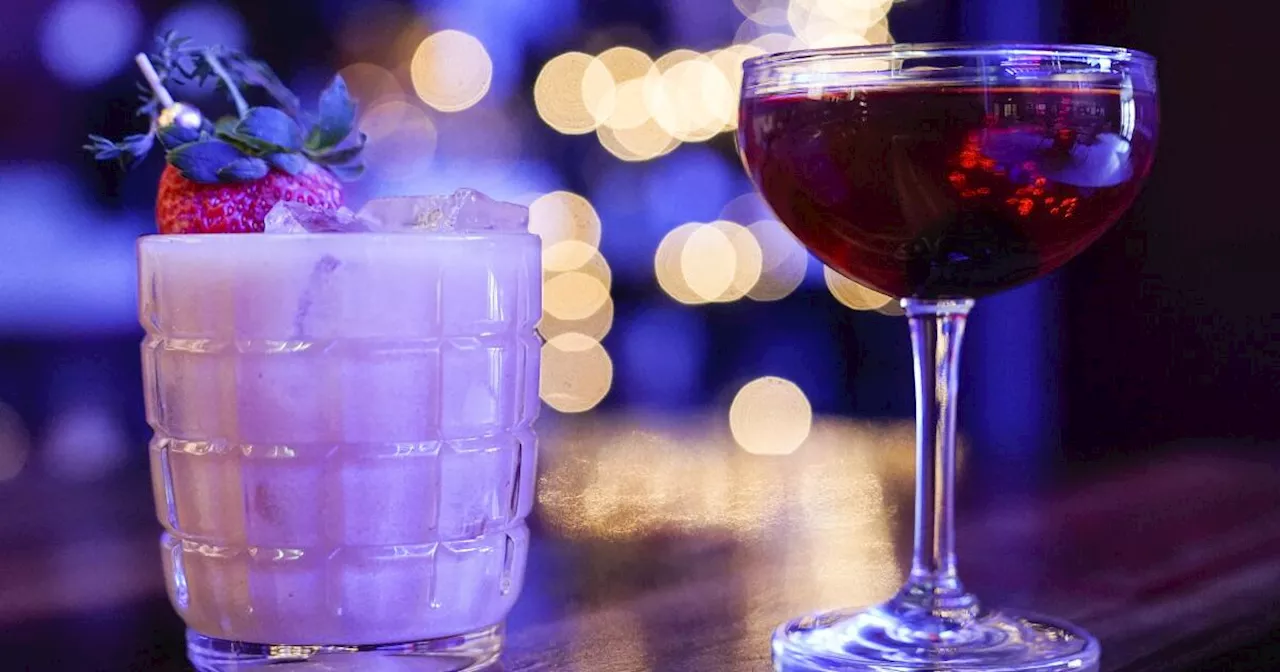US health advisers are calling for updated warning labels on alcoholic beverages, emphasizing the link between alcohol consumption and an increased risk of cancer. They highlight that alcohol is a preventable cause of approximately 100,000 cancer cases and 20,000 cancer deaths annually in the United States, surpassing alcohol-related traffic fatalities.
FILE - Jim Beam, Knob Creek and other alcohol bottles are pictured at a bar in Eagle, Colo., Dec. 25, 2018. about the link between alcohol consumption and an increased risk of cancer, urging for updated health warning labels on alcoholic beverages.
“Alcohol is a well-established, preventable cause of cancer responsible for about 100,000 cases of cancer and 20,000 cancer deaths annually in the United States – greater than the 13,500 alcohol-associated traffic crash fatalities per year in the U.S. – yet the majority of Americans are unaware of this risk,”. “This Advisory lays out steps we can all take to increase awareness of alcohol’s cancer risk and minimize harm.
The science behind alcohol's cancer risk involves its breakdown into acetaldehyde, a chemical compound that can damage DNA, thereby increasing cancer risk. Alcohol consumption can lead to greater absorption of carcinogens, substances known to cause cancer. Alcohol induces oxidative stress, increasing the risk of cancer by damaging DNA, proteins, and cells and increasing inflammation.
"Despite clear evidence demonstrating the effect of alcohol consumption on cancer risk, there is a large gap in public understanding of the risk. In a 2019 survey, 45% of Americans recognized alcohol use as a risk factor for cancer compared to 91% of Americans who recognized the risk of radiation exposure, 89% for tobacco use, 81% for asbestos exposure, and 53% for obesity," the advisory reads.
Meanwhile, the mocktail movement has gained traction, with data showing a decline in alcohol consumption, particularly among younger Americans. Afound that 62% of adults under 35 reported drinking alcohol, a decrease of 10 percentage points over the past two decades.
Alcohol Cancer Health Warning Risk Consumption
United States Latest News, United States Headlines
Similar News:You can also read news stories similar to this one that we have collected from other news sources.
 Striking San Francisco hotel workers urge J.P. Morgan health conference attendees to stay awayStriking San Francisco hotel workers are attempting to discourage people from attending a major healthcare conference in January.
Striking San Francisco hotel workers urge J.P. Morgan health conference attendees to stay awayStriking San Francisco hotel workers are attempting to discourage people from attending a major healthcare conference in January.
Read more »
 Striking San Francisco hotel workers urge J.P. Morgan health conference attendees to stay awayStriking San Francisco hotel workers are attempting to discourage people from attending a major healthcare conference in January.
Striking San Francisco hotel workers urge J.P. Morgan health conference attendees to stay awayStriking San Francisco hotel workers are attempting to discourage people from attending a major healthcare conference in January.
Read more »
 Nobel Prize winners urge senators to reject RFK Jr. as health services leaderRooted in fact-based, transparent reporting, Newsy is an award-winning opinion-free network owned by the E.W. Scripps Company that is relentlessly focused on “the why” of every story and seeks to enable a more intimate and immersive understanding of the issues that matter.
Nobel Prize winners urge senators to reject RFK Jr. as health services leaderRooted in fact-based, transparent reporting, Newsy is an award-winning opinion-free network owned by the E.W. Scripps Company that is relentlessly focused on “the why” of every story and seeks to enable a more intimate and immersive understanding of the issues that matter.
Read more »
 Scientists Urge Ban on 'Mirror Life' Before It Endangers Global HealthThe Best in Science News and Amazing Breakthroughs
Scientists Urge Ban on 'Mirror Life' Before It Endangers Global HealthThe Best in Science News and Amazing Breakthroughs
Read more »
 Norovirus outbreaks spike during holiday season, health officials urge cautionHealth experts warn of increased norovirus outbreaks, stressing extra precautions during holiday gatherings.
Norovirus outbreaks spike during holiday season, health officials urge cautionHealth experts warn of increased norovirus outbreaks, stressing extra precautions during holiday gatherings.
Read more »
 US Health Officials Urge Americans to Reduce Alcohol Consumption to Lower Cancer RiskThe Director of Health for the United States, Dr. Vivek Murthy, is calling for updated health warning labels on alcoholic beverages to include the risk of cancer. This follows new research that debunks the myth of moderate alcohol consumption's heart health benefits, highlighting the link between alcohol and various cancers like colon, liver, breast, mouth, and throat cancers. Dr. Timothy Naimi, director of the Canadian Institute of Substance Use Research, emphasizes that reducing alcohol intake is a crucial step towards a healthier lifestyle. He suggests following government dietary guidelines, which recommend no more than two drinks per day for men and one drink or less for women.
US Health Officials Urge Americans to Reduce Alcohol Consumption to Lower Cancer RiskThe Director of Health for the United States, Dr. Vivek Murthy, is calling for updated health warning labels on alcoholic beverages to include the risk of cancer. This follows new research that debunks the myth of moderate alcohol consumption's heart health benefits, highlighting the link between alcohol and various cancers like colon, liver, breast, mouth, and throat cancers. Dr. Timothy Naimi, director of the Canadian Institute of Substance Use Research, emphasizes that reducing alcohol intake is a crucial step towards a healthier lifestyle. He suggests following government dietary guidelines, which recommend no more than two drinks per day for men and one drink or less for women.
Read more »
